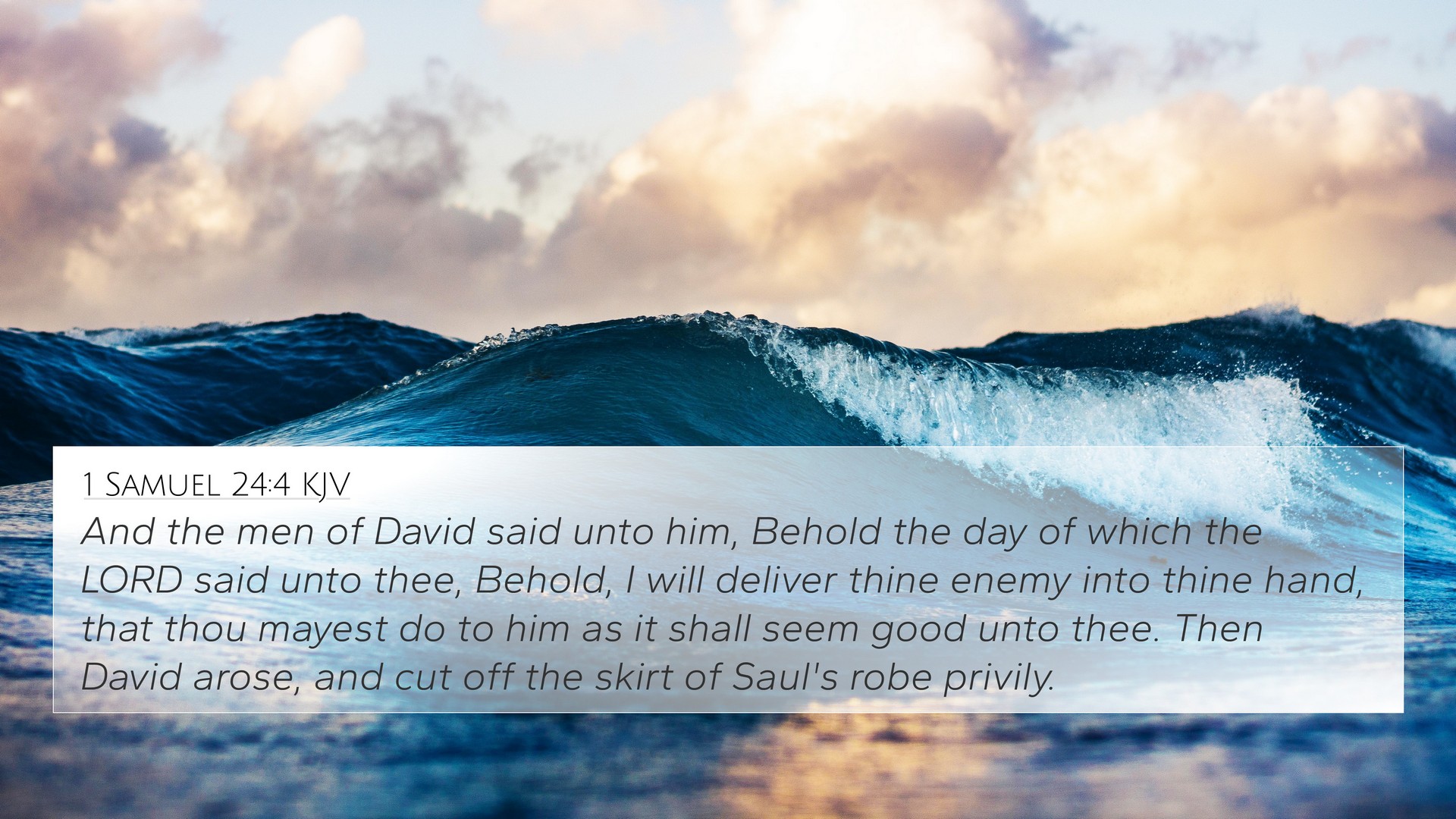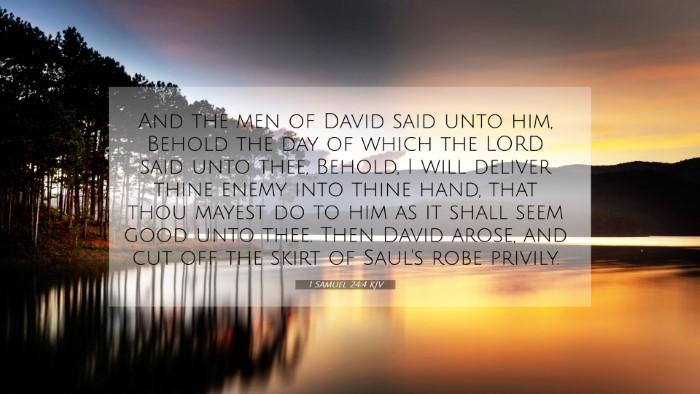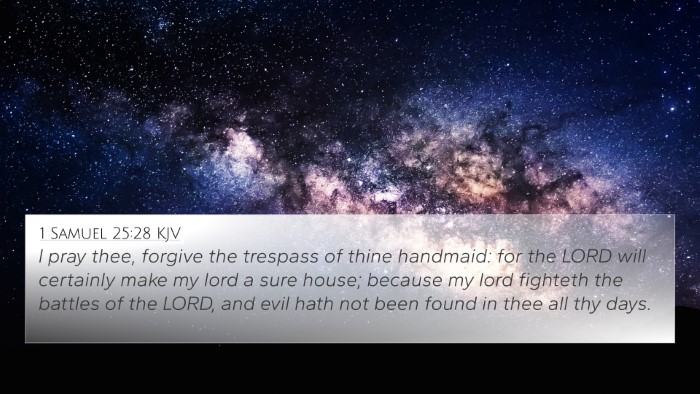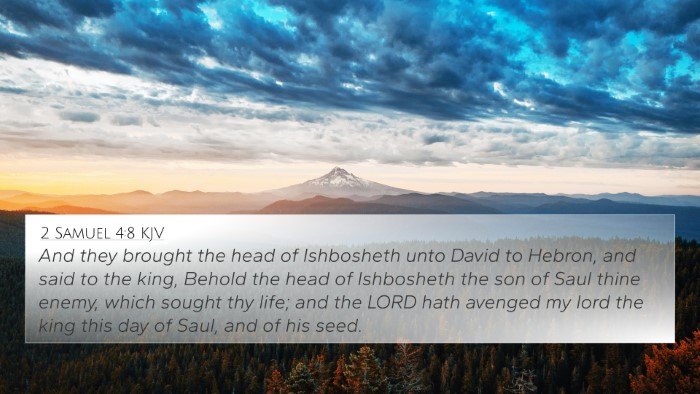Understanding 1 Samuel 24:4
1 Samuel 24:4 captures a significant moment in the life of David, as he confronts the dilemma of calamity vs. mercy. His act holds profound implications for understanding leadership, forgiveness, and the nature of divine guidance.
Verse Context
This verse states:
“And the men of David said unto him, Behold, the day of which the Lord said unto thee, Behold, I will deliver thine enemy into thine hand, that thou mayest do to him as it shall seem good unto thee.”
Commentary Insights
Several commentators provide valuable perspectives on this verse:
-
Matthew Henry:
Henry emphasizes the contrast between David's men urging immediate action against Saul and David's restraint, highlighting the importance of waiting on God's timing instead of acting out of human impulse. This moment illustrates David's ability to recognize God's authority over vengeance, focusing instead on righteousness.
-
Albert Barnes:
Barnes indicates that this incident reflects a turn in David's understanding of kingship and leadership. The very act of choosing not to slay Saul is a testament to David’s character, showcasing a deep respect for God’s anointed and patience against provocation.
-
Adam Clarke:
Clarke discusses the importance of discerning the true will of God and underscores that divine purpose cannot be achieved through ungodly means. David’s decision not to harm Saul serves as an early illustration of the moral complexities within leadership and the dire consequences that can follow rash decisions.
Thematic Connections
This moment establishes key themes such as:
- Morality in Leadership: The ways leaders must bear the weight of their decisions for the sake of their people.
- The Nature of Forgiveness: Exhibiting mercy even when one has been wronged, exemplified by David's restraint.
- Divine Timing: Trusting in God's hand rather than reacting spontaneously to circumstances.
Bible Verse Cross-References
To fully grasp the implications of 1 Samuel 24:4, look to the following cross-references:
- 1 Samuel 26:9-11: David’s further refusal to harm Saul, reinforcing his principles.
- Romans 12:19: “Vengeance is mine; I will repay, saith the Lord,” mirroring David’s avoidance of personal vengeance.
- Matthew 5:44: Jesus’ command to love and pray for enemies draws a parallel to David's behavior.
- 1 Peter 2:23: Christ’s example of suffering without retaliation, showing the ultimate model of restraint.
- James 1:19-20: The call for quick listening and slow anger, which David exemplifies in this narrative.
- Proverbs 20:22: A reminder not to say, “I will repay evil,” emphasizing patience and faith in God.
- 2 Samuel 1:14-16: David’s response to the news of Saul’s death, marking the importance of honoring God’s anointed.
Conclusion
1 Samuel 24:4 serves as a critical reflection point on how believers are invited to navigate their own dilemmas between justice and mercy. The cross-references provided enhance understanding, linking to New Testament teachings that discuss similar themes of forgiveness and the divine right of judgment.
Practical Applications
As we seek to understand how to apply this scripture to our lives today, consider:
- The importance of listening to divine guidance when faced with ethical dilemmas.
- How acts of mercy can pave the way for greater understanding and peace.
- Utilizing tools for Bible cross-referencing to connect themes and principles across scripture.











